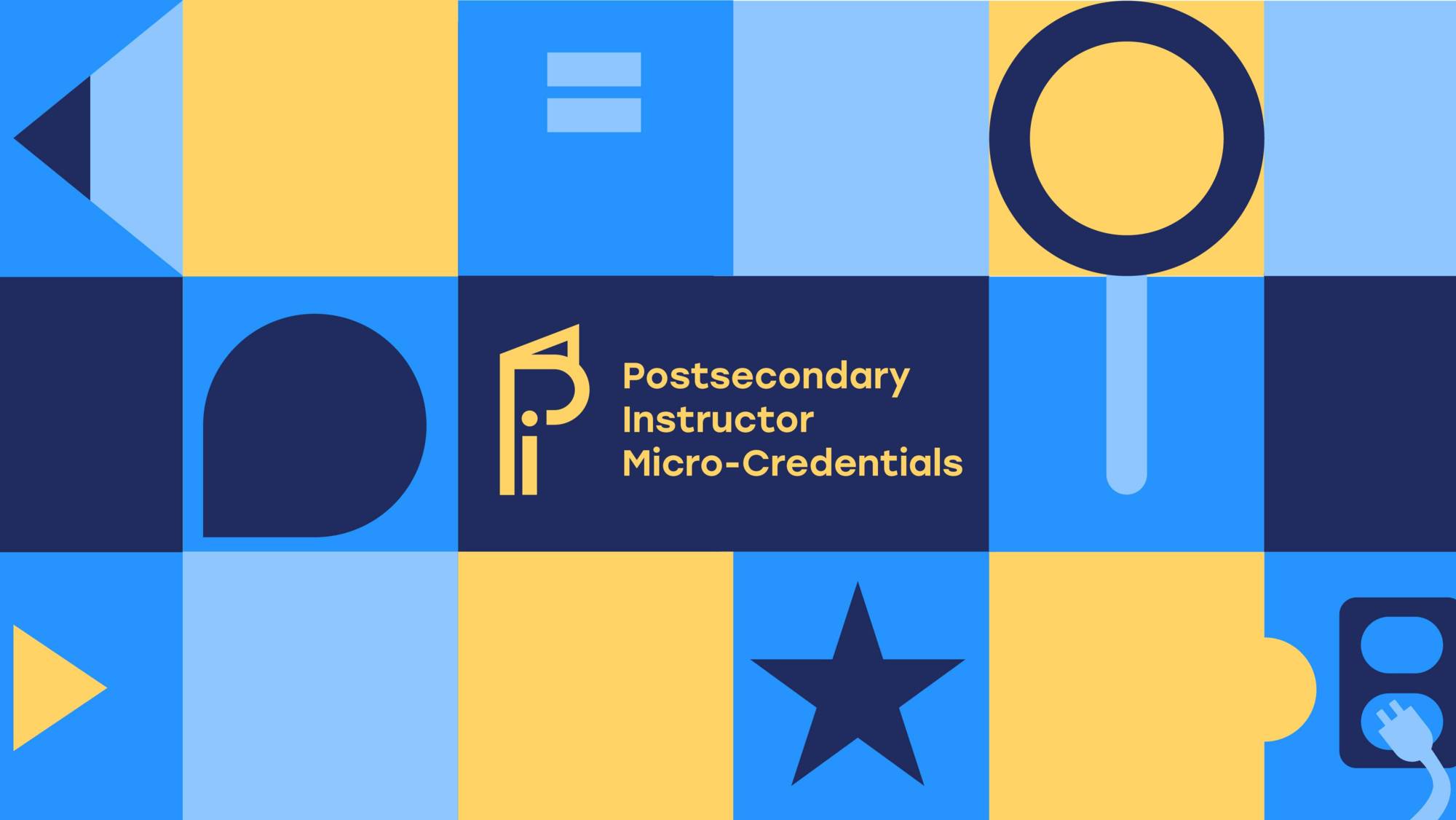Postsecondary Instructor Micro-Credentials
Postsecondary Instructor Micro-Credentials
Providing high-quality professional development for college instructors in developmental education and co-requisite contexts
What We Do
The Postsecondary Instructor Micro-credentials project – or PIM for short – builds and offers high-quality non-credit professional development (PD) for educators who work in postsecondary developmental education and co-requisite contexts. The PD is delivered through a mini-course format, hosted on the Canvas LMS, that focuses on specific instructional aspects and is facilitated by an expert in the field. Each PD mini-course provides a digital badge for participants that recognizes their successful completion of that PD and the skills and knowledge covered by the PD mini-course.
The project is funded by the Texas Higher Education Coordinating Board (THECB) and is designed to serve educators in postsecondary institutions in the state of Texas. A funding requirement from the THECB is that enrollment in these professional development mini-courses is limited to educators employed by Texas public institutions of higher education. For educators employed by Texas public institutions of higher education, enrollment is free during the funded period of the project (2022-2023). Project leads are Dr. Eric Paulson and Dr. Jodi Holschuh.

How PIM PD Works
Each PD experience occurs within a three-week time span. Find a topic that is useful to you from the “Digital Badges Offered” section below and register for the PD mini-course for that badge when the PD registration is open. Once you complete all three phases of the PD mini-course the digital badge is awarded to you.
Professional Development Micro-credentials Offered
The 2022-2023 stage of the PIM project included 10 topics for PD offerings. We decided on these topics through a process of surveying Texas educators associated with the College Academic Success Programs conference and listserv, focus group meetings with our PIM Advisory Board, and the research and discussions of the PIM team.

How the PD Mini-courses Work
Each non-credit professional development mini-course takes place within a 3-week time span, is provided online and hosted on Canvas, and has a facilitator who is an expert in the topic. There are three parts to each PD mini-course, with both synchronous sessions and independent practice experiences:

Mini-Course Phases
• Phase 1: A whole-group synchronous live workshop with an expert PD facilitator where you collaborate with other practitioners
• Phase 2: An independent, asynchronous experience and deliberate practice section with support from your facilitator through Canvas as needed
• Phase 3: A whole-group synchronous closing live workshop with your facilitator.
Who We Are
The PIM team is made up of developmental education experts with diverse backgrounds of knowledge and experience related to literacy, math, learning support, equity, community building, and more.

-
How much does each mini-course cost?
The project is funded by the THECB and is free for Texas college educators during the funded period of the project (2022-2023)
-
Are the professional development mini-courses offered in-person or online?
The professional development mini-courses are offered online and include both synchronous and asynchronous components. For more information, please see the descriptions in the "How the PD Mini-Courses Work" section above.
-
What are professional development micro-credentials?
In the non-credit professional development context of our project, micro-credentials are indicators of preparation and accomplishment in a very specific professional development area. They are relatively compact and personalized, centering on a single, very focused or concentrated topic. Educators who earn a PIM micro-credential in a particular area have successfully completed a professional development mini-course on that topic. The micro-credential is represented by a digital badge that is issued to educators when they complete the mini-course. This professional development does not earn institutional undergraduate or graduate course credit.
-
What are digital badges?
Once the micro-credential is earned, students are presented with a digital badge of that micro-credential. The digital badge is an electronic representation of the micro-credential that participants can use in social media, their LinkedIn account, their email signature line, campus webpages, and other areas. The digital badge carries with it metadata that provides information about the micro-credential and mini-courses.
-
How do I receive my digital badge once I complete a professional development mini-course?
- After you complete a professional development mini-course, the facilitator of that mini-course will submit your name as having earned the digital badge.
- You will then receive an email letting you know you’ve earned the digital badge; the email will come from "Texas State University Continuing Education via Credly <admin@credly.com>". If you don’t see the email within a week of completing your requirements for the mini-course, please check your spam/junk folder.
- Click the button in the email labeled “Accept your badge.”
- If this is your first badge from Credly, you will be directed to create a (free) account.
- After completing the process of creating your Credly account, you will be able to access your badge.
-
What are the goals of the PIM project?
The goal of this project is to provide high-quality micro-credentials to postsecondary educators across the state of Texas. We believe that micro-credentials:
- should be able to be attained within a short timeframe;
- should be specific to evidence-based, theoretically-supported classroom practice at the postsecondary level and should support that practice;
- should entail and include a variety of experiences;
- should have as its major function to support instructors’ continuous development as professional educators;
- should provide a route for continuous updating of professional knowledge, which results in greater classroom teaching proficiency;
- should include the ability for instructors to demonstrate their renewal of expertise in specific areas; and
- should be obtainable for participants in a variety of regions and institutional contexts, so potential barriers like distance, time, availability, and cost should all be considered.
-
Do the PIM professional development micro-credentials count as CEUs?
The PIM professional development micro-credentials have been approved by Texas State University's Office of Distance and Extended Learning unit to count as one Continuing Education Unit (CEU). To count as a CEU for the purposes of your institution, please ensure that your institution/supervisor recognizes it as such. This professional development does not earn graduate or undergraduate course credit.
